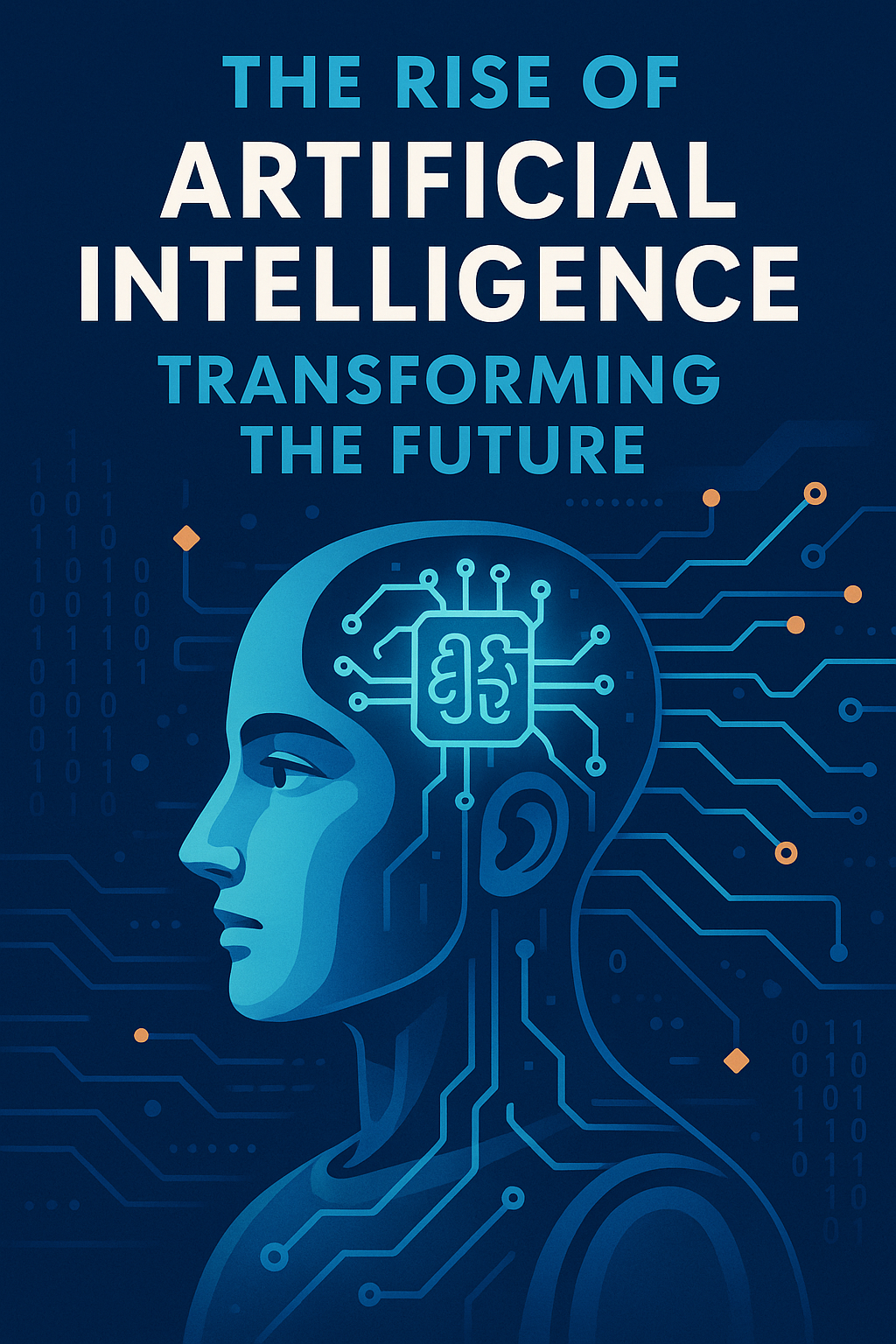Artificial Intelligence (AI) is no longer just a concept from science fiction—it is now a powerful force reshaping the world around us. From smartphones to self-driving cars, AI is making life easier, smarter, and more efficient. But what exactly is AI, and how is it transforming our future?
What is Artificial Intelligence?
Artificial Intelligence refers to the ability of machines and computer programs to perform tasks that typically require human intelligence. These tasks include learning, reasoning, problem-solving, understanding language, and recognizing images or patterns. AI systems are designed to analyze large amounts of data, learn from it, and make decisions—sometimes even better than humans.
Types of AI
There are mainly three types of AI:
1. Narrow AI: Also called Weak AI, it is designed for specific tasks, such as virtual assistants (like Siri or Alexa) or recommendation systems (like Netflix and YouTube).
2. General AI: This form of AI would perform any intellectual task a human can do. It is still under research and development.
3. Superintelligent AI: A hypothetical AI that surpasses human intelligence in all areas. It remains a topic of debate and speculation.
Applications of AI in Daily Life
Healthcare: AI is used for diagnosing diseases, robotic surgeries, and personalized medicine.
Education: Intelligent tutoring systems, automatic grading, and AI-powered learning platforms are helping students learn better.
Finance: Fraud detection, algorithmic trading, and virtual customer service agents are powered by AI.
Agriculture: AI-driven tools help monitor crops, predict weather conditions, and increase crop yields.
Transportation: Self-driving cars and smart traffic systems are made possible through AI.
Advantages of AI
Reduces human error
Works 24/7 without fatigue
Automates repetitive tasks
Enhances productivity and efficiency
Enables better decision-making with data
Challenges and Concerns
Despite its advantages, AI also brings challenges:
Job displacement due to automation
Ethical concerns (privacy, bias, misuse)
Dependency on technology
Lack of emotional intelligence and human touch
The Future of AI
AI is evolving rapidly and will continue to influence every sector of society. Experts believe that responsible development of AI can solve major global problems, from climate change to medical breakthroughs. However, it’s crucial to balance innovation with ethics, ensuring that AI benefits all of humanity.
Conclusion
Artificial Intelligence is not just the future—it is the present. With its immense power and potential, AI holds the key to a smarter and more advanced world. As we move forward, understanding and guiding AI responsibly will be essential for shaping a better tomorrow.





